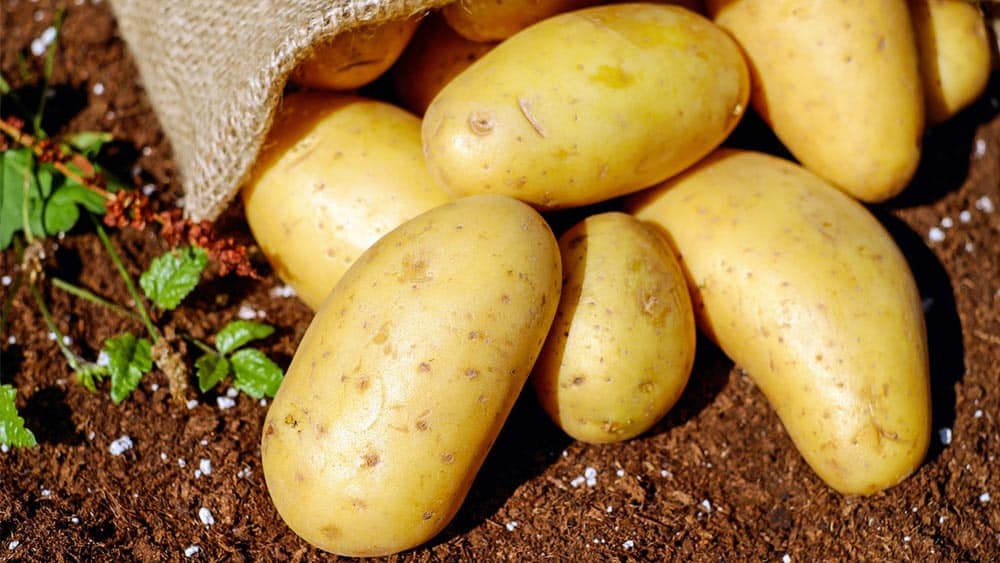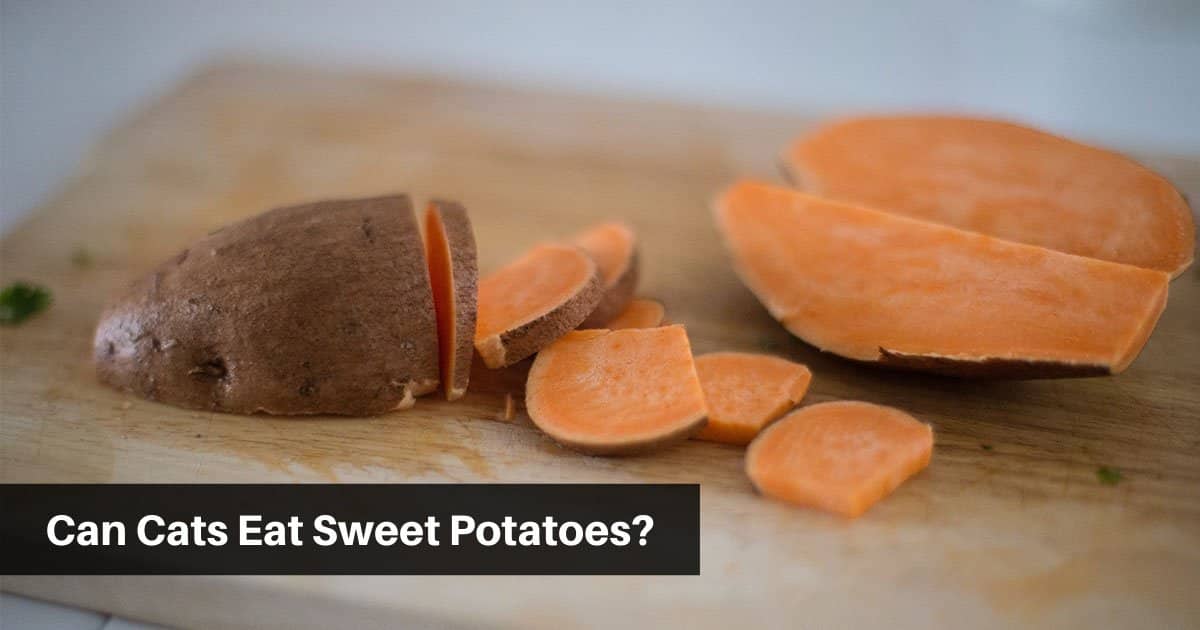Sweet potatoes and potatoes, in general, are very beneficial for us humans. Not only that, but sweet potatoes can bring health benefits to dogs and some other pets as well.
Here, one might start wondering – if sweet potatoes are beneficial for dogs, what about cats? Are sweet potatoes toxic to cats? And if not, should you give your cat sweet potato?
Let’s try to give answers to these questions below.
Can Cats Eat Sweet Potatoes?
Short answer: Yes, cats can have sweet potatoes. However, sweet potatoes aren’t ideal food for them. Cats generally tolerate it poorly, though this may differ from cat to cat. Their sensitive stomach digestive system isn’t adapted to the compounds (most importantly, carbohydrates) found in sweet potatoes. As obligate carnivores, cats require animal tissue to survive and stay healthy.
With that said, some people think that sweet potatoes can help you treat constipation in your cat. But unless your vet has recommended adding it to your cat’s diet, you probably shouldn’t do it – it may make matters worse.
Proper Preparation of Sweet Potatoes as Cat Food
So if your vet has given you the green light, then it may be worth a try to feed your cat on sweet potatoes for some time. However, it should be prepared properly to make sure that your cat can easily consume and digest them.
Here’s what you should and should not do with sweet potato diets:
Don’t Give Your Cat Raw Potatoes.

Raw potatoes are a no-no for cats. It contains compounds poisonous to them. One of these compounds is glycoalkaloid solanine. When boiled or baked, these compounds break down, making potatoes safer for consumption.
Cooked potatoes: Don’t Add Any Seasonings
The potatoes should be cooked without any seasoning or ingredients like garlic, onions, or chives. These probably won’t make a taste difference for your cat, not to mention that such ingredients can be lethal for cats. What this means is that you shouldn’t give your cat food from sweet potatoes prepared for yourself.
Serve the Potatoes Mashed
Cats do not chew their food – their small molars aren’t capable of that. If you ever noticed that your cat swallows the food with little chewing, it wasn’t because your cat was gluttonous – it was because cats cannot chew food effectively.
In the wild, cats shear the meat into small pieces that can be safe for cats to consume. Cat food generally comes in bite-sized chunks as well. Improperly sized food can get stuck in the pet’s intestines and cause a wide gamut of health issues or even death.
With this in mind, mash the sweet potatoes to make consumption and digestion as easy as you can.
Start small
Cats may react to sweet potatoes differently. Some may even like them, but others will straight up throw up or develop digestion issues.
You should start small amounts and see how your cat reacts. If all seems good, then you may try to give more sweet potatoes to your cat.
Avoid Processed Potato Products
Avoid giving your cat any processed potato products like French fries or baby food like potato chips. These may contain harmful compounds that are not safe for cats. So you shouldn’t give cats to eat processed potato products, French fries, or baby food like potato chips.
Following these tips should allow you to feed your cat on sweet potatoes safely and efficiently.
Are Sweet Potato Vines Toxic to Cats?
If you are growing sweet potatoes yourself, then you may also be wondering whether the potato vines themselves are toxic for cats.
According to the American Society for the Prevention of Cruelty to Animals, sweet potato vines aren’t toxic to cats. However, to stay safe, make sure that you shouldn’t allow your cat near sweet potato vines.
Avoid Long-Term Potato Diets
Even though you may give a sweet potato diet a try, you should probably avoid long-term diets. Carbohydrates contained in food products, including sweet potatoes, aren’t well-digested by cats. In fact, excessive carbohydrate intake can cause obesity and diabetes in cats.
So yeah, you shouldn’t serve your cats to eat sweet potato for too long, nor should you give your cat large portions of it.
Should You Give Your Cat Sweet Potatoes?

We’ve covered everything you should know about our feline friends and sweet potato. However, there is still one thing left to talk about.
Should you even bother with sweet potato cat diets? Are there any benefits associated with it for cats? It doesn’t seem that there are.
Some may argue that dogs do readily eat potatoes. Not only that, but sweet potatoes are thought to provide a wide array of nutritional benefits for dogs, including better vision, skin, coat, nerve, and muscle health.
This doesn’t apply to cats, however. Cats are very different – most importantly, they are obligate carnivores (I.e., they must eat meat), whereas dogs are omnivores (they can get nutrition from a wide array of foods).
So is there any point in writing a new diet for your cat with sweet potato? Most likely, no.
We think that there are only two reasons why you may want to incorporate sweet potato in your cat’s diet:
- Your cats eat sweet potatoes and seem to like it. In this case, you may give sweet potatoes to your cat as an occasional treat.
- Your vet has recommended sweet potato to deal with some health issues.
In our opinion, both are pretty unlikely.
Final Words
Cats are generally picky eaters, and they know what they should eat and what they should not. Dogs are a little different in this regard – they can eat whatever you give them, which doesn’t always end well for our canine friends.
As for the second point, sweet potato is probably among the last dietary supplements that your vet will recommend for your cat.
So unless these two points apply to your cat, don’t bother – you probably will be doing more harm than good for your cat with sweet potato. Out in the wild, cats do not eat potatoes, grains, or other foods rich in carbohydrates. Instead, their diet consists primarily of animal meat.
Instead, focus on ensuring that your cat gets enough protein from its diet. To do this, consult your vet to see which foods your cat should consume to stay healthy.

Hello and welcome to The Ideal Cat!
We are some passionate cat owners from different professions. We love our cats and have a lot of experience in how to care for our pets. We are incredibly excited to share our knowledge, experience, and research with you. So you can take good care of your loving cat. We will answer most of the common questions about owning cats, taking care of them, etc. If you have any question contact with us. Thanks for visiting! Enjoy the content.
